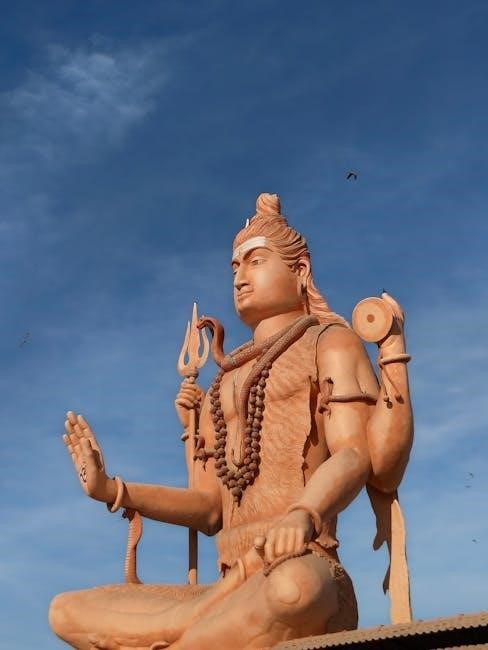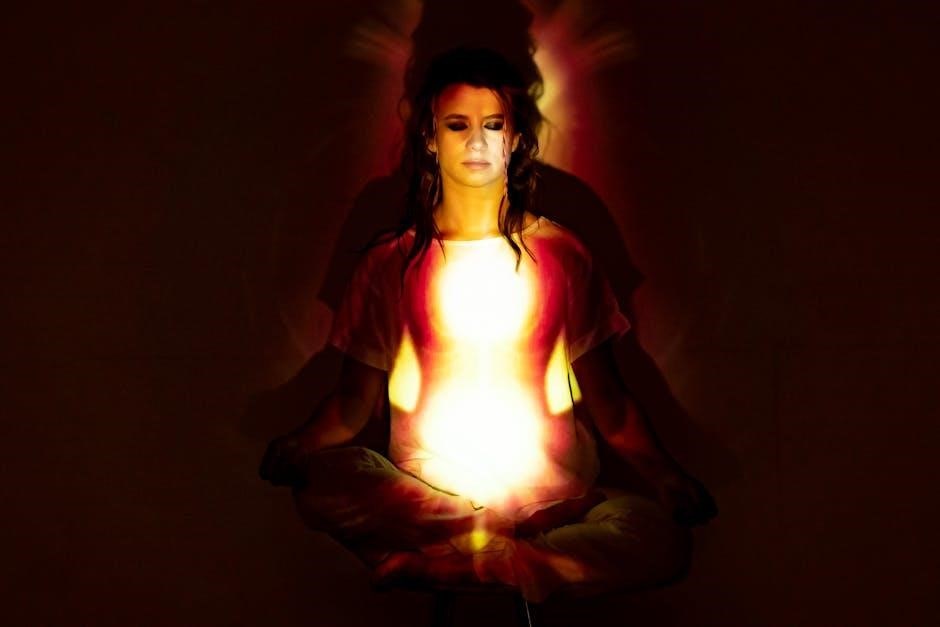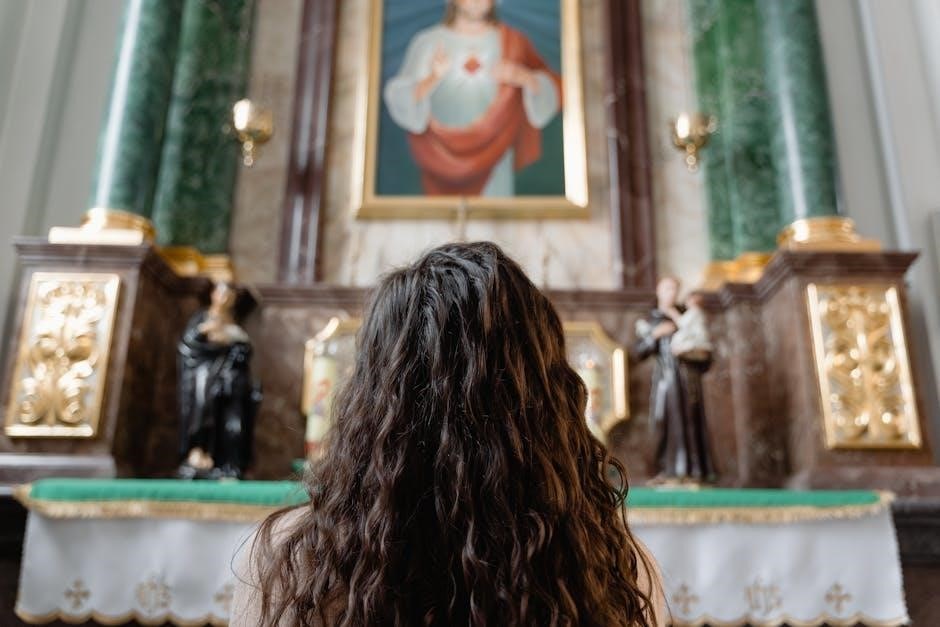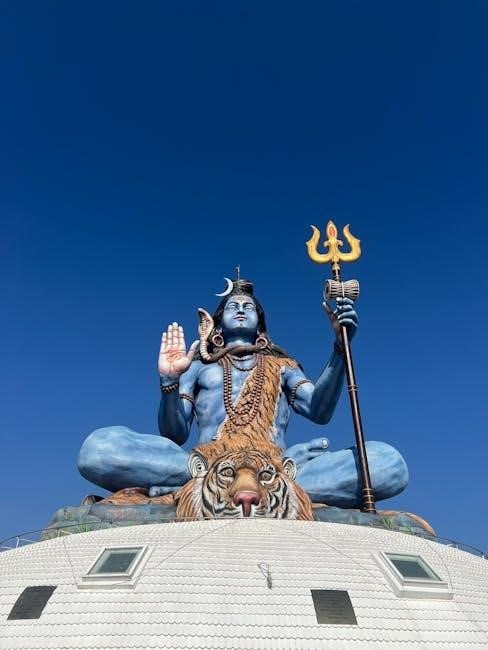God of Carnage, a play by Yasmina Reza, is a dark comedy exploring human behavior and societal norms. Available as a PDF, it remains a critical acclaim.
1.1 Overview of the Play
God of Carnage, written by Yasmina Reza, is a dark comedy that delves into human behavior and societal norms. The play revolves around a playground altercation between two boys, prompting their parents to meet and discuss the incident. What begins as a civilized conversation gradually unravels, exposing the characters’ true nature. The play explores themes of violence, hypocrisy, and the thin line between civility and savagery. Available in PDF format, it has garnered critical acclaim for its sharp dialogue and profound insights into human dynamics. Reza’s work continues to resonate with audiences, offering a compelling commentary on modern society.
1.2 Yasmina Reza and Her Work
Yasmina Reza is a renowned French playwright and novelist, celebrated for her incisive exploration of human behavior. Her works, including Art, The Unexpected Man, and God of Carnage, have achieved international acclaim. Reza’s writing often delves into the complexities of relationships, societal norms, and the duality of human nature. Her sharp dialogue and ability to expose hypocrisy have made her a prominent figure in contemporary theatre. God of Carnage, translated into multiple languages, showcases her mastery of dark comedy and psychological depth. The play’s success has solidified her reputation as a fearless commentator on modern society, with her works widely available, including in PDF format.

Background and Inspiration
God of Carnage originated as Le Dieu du Carnage by Yasmina Reza, exploring themes of violence and societal norms. Christopher Hampton’s translation brought it to global acclaim, inspiring its darkly comedic take on human behavior.
2.1 The Original French Version: “Le Dieu du Carnage”
Le Dieu du Carnage, the original French play, was written by Yasmina Reza and published by Albin Michel in Paris. The title translates to “The God of Carnage,” reflecting its central theme of inherent human violence. Reza’s work often explores the complexities of human behavior, and this play is no exception. It was first performed in France before gaining international recognition. The success of the French version led to its translation into multiple languages, including Christopher Hampton’s English adaptation, which further cemented its global acclaim. The play’s dark humor and sharp dialogue have made it a favorite among both audiences and critics worldwide.
2.2 Cultural and Social Themes in the Play
God of Carnage delves into profound cultural and social themes, exploring the duality of human nature. The play critiques the societal facade of civility, revealing how quickly individuals abandon their polite masks when confronted with conflict. Reza examines themes of violence, hypocrisy, and the thin line between savagery and civilization. The characters’ interactions expose the bourgeois hypocrisy and the inherent aggression hidden beneath polished manners. The play also touches on the universality of human behavior, suggesting that cultural differences are mere surface-level variations. Through its sharp dialogue and dark humor, God of Carnage challenges audiences to reflect on their own societal roles and the violence they may suppress.

Plot Summary
God of Carnage begins with a playground altercation between two boys, sparking a meeting between their parents. Initial civility devolves into chaos, revealing raw emotions and societal tensions.
3.1 The Playground Incident
The play opens with a violent altercation between two boys, Ferdinand and Bruno, on a playground. Ferdinand, armed with a stick, knocks out Bruno’s teeth, sparking tension among their parents. This incident sets the stage for the meeting of the Novaks and Raleighs, who gather to discuss the matter civilly. However, the conversation quickly escalates, revealing underlying conflicts and societal hypocrisies. The playground incident serves as a catalyst, exposing the thin veil of civility and the true nature of the characters. It highlights how seemingly minor events can unravel deeper tensions, setting the tone for the rest of the play.
3.2 The Meeting of Two Couples
The meeting between the Novaks and Raleighs begins with polite conversation, but tensions rise as their true personalities emerge. Veronica, a writer, and Michael, a hardware store owner, host Annette and Alan, a lawyer. The discussion about their sons’ altercation quickly turns heated, revealing underlying conflicts. The couples’ attempts at civility crumble, exposing their flaws and societal pretenses. The meeting becomes a battlefield, showcasing how quickly adult decorum can dissolve into childish behavior. This clash highlights the fragility of social masks and the inherent violence beneath the surface of civilized interactions, a central theme of the play.

Main Characters
The play focuses on two couples: Veronica and Michael Novak, and Annette and Alan Raleigh. Their contrasting personalities and professions fuel the tension, revealing their true selves.
4.1 The Novaks and the Raleighs
The Novaks and Raleighs are two middle-class couples whose lives intersect due to their children’s altercation. Veronica Novak, a meticulous and refined woman, and her husband Michael, a pragmatic hardware store owner, host the meeting. The Raleighs, Annette and Alan, are more affluent, with Annette being a former lawyer and Alan a pharmaceutical executive. Their contrasting backgrounds and personalities create friction, leading to a clash of values and social norms. As the story unfolds, their civilized facades crumble, revealing raw emotions and hidden truths about their relationships and selves. This dynamic drives the play’s exploration of human nature and societal expectations.
4.2 Character Dynamics and Relationships
In God of Carnage, the relationships between the Novaks and Raleighs unravel as their civilized demeanor fades. Veronica and Annette, both strong-willed women, clash over their differing views, while Michael and Alan bond superficially; The husbands’ camaraderie contrasts with the wives’ tension, revealing underlying insecurities. Veronica’s controlling nature and Annette’s passive-aggressive behavior escalate the conflict. Meanwhile, their husbands’ attempts to mediate fail, exposing their own flaws. As alliances shift, the couples’ interactions become increasingly chaotic, stripping away their social masks and revealing raw, primal emotions. This dynamic exploration of human behavior highlights the fragility of relationships and societal expectations.

Themes of the Play
God of Carnage explores themes of human savagery, societal hypocrisy, and the collapse of civility. It challenges the idea of civilized behavior, revealing primal instincts beneath polished facades.
5.1 The Nature of Violence and Civility
God of Carnage delves into the duality of human nature, exposing the thin line between civility and primal violence. The play portrays how seemingly civilized individuals revert to aggressive behavior when provoked, revealing the inherent savagery beneath their polished exteriors. Through the escalating tensions between the two couples, Yasmina Reza critiques societal expectations of decorum, suggesting that violence is not just physical but also emotional and verbal. The characters’ gradual descent into chaos highlights how easily civility crumbles under stress, exposing the raw, instinctual responses that lie beneath. This theme underscores the idea that violence is an inseparable part of human nature, masked by societal norms.
5.2 Social Masks and Hypocrisy
God of Carnage masterfully exposes the social masks individuals wear to conform to societal expectations. The two couples initially present themselves as polite and civilized, adhering to norms of propriety. However, as tensions rise, their true selves emerge, revealing hypocrisy and selfishness. Yasmina Reza critiques the societal pressure to maintain a facade of morality, highlighting how easily these masks crumble under stress. The characters’ shift from courteous dialogue to open hostility underscores the discrepancy between their public personas and private realities. This theme serves as a scathing commentary on the superficiality of social interactions and the ease with which individuals abandon their ideals when confronted with conflict.

Availability of “God of Carnage” in PDF
God of Carnage is available in PDF format, published by Dramatists Play Service, Inc., and released in 2008. It spans 52 pages, offering a convenient digital reading option.
6.1 Download Options and Formats
The PDF version of God of Carnage is widely available for download, offering readers a convenient format to access the play. It is published by Dramatists Play Service, Inc., and features the complete 52-page script. The PDF format ensures that the layout and structure of the play remain intact, preserving the original dialogue and stage directions. Additionally, the play is available in EPUB and Kindle formats, catering to readers who prefer different e-reader platforms. The PDF version is particularly popular due to its compatibility with various devices and its ease of use for reading and printing. Legal downloads can be sourced from reputable platforms to ensure quality and authenticity.
6.2 Legal and Safe Sources for the PDF
Obtaining the God of Carnage PDF from legal and safe sources is essential to ensure quality and support the author. Reputable platforms like Amazon, Google Books, and Dramatists Play Service, Inc. offer secure downloads. These platforms provide the play in various formats, including PDF, EPUB, and Kindle, ensuring compatibility with different devices. Purchasing from these sources guarantees an authentic and complete version of the script. Avoiding illegal downloads not only respects copyright laws but also ensures a safe and virus-free reading experience. By choosing legal sources, readers contribute to the sustainability of literary works and support the creators behind them.

Reception and Reviews
God of Carnage received widespread critical acclaim for its sharp dialogue and biting humor. Audiences praised its thought-provoking exploration of human nature, solidifying its popularity worldwide.
7.1 Critical Acclaim and Awards
God of Carnage has garnered significant critical acclaim and prestigious awards. It won the Tony Award for Best Play in 2009, highlighting its universal appeal and sharp dialogue. Yasmina Reza’s work is celebrated globally, with translations in multiple languages. The play’s ability to dissect human behavior and societal masks has earned it widespread praise. Critics laud its biting humor and thought-provoking themes, making it a standout in modern theater. Its success extends beyond Broadway, resonating with audiences worldwide. This acclaim underscores its relevance in exploring the duality of human nature, cementing its place as a contemporary theatrical masterpiece.
7.2 Audience Response and Popularity
God of Carnage has captivated audiences worldwide with its sharp dialogue and relatable themes. The play’s dark humor and exploration of human behavior resonate deeply, making it a favorite among theatergoers. Its popularity is evident in its widespread performances across multiple countries and languages. Audiences appreciate how the play strips away societal masks, revealing raw emotions and truths. The availability of the play in PDF and other formats has further boosted its accessibility, allowing readers to engage with its compelling narrative. This widespread appeal highlights its enduring relevance in contemporary culture, ensuring its continued popularity among both critics and audiences alike.
God of Carnage remains a powerful exploration of human nature, offering a thought-provoking commentary on societal norms. Its enduring relevance ensures continued engagement with audiences globally through its PDF availability.
8.1 The Lasting Impact of “God of Carnage”
God of Carnage has left an indelible mark on contemporary theatre, with its sharp dialogue and biting social commentary resonating deeply with audiences. Its exploration of human nature, revealing the thin line between civility and savagery, continues to provoke thought and discussion. The play’s enduring popularity is evident in its widespread availability in PDF format, allowing readers to engage with its themes of violence, hypocrisy, and societal masks. Yasmina Reza’s masterpiece remains a significant work in modern drama, ensuring its relevance for years to come through its accessible digital formats.
8.2 Final Thoughts on the Play’s Relevance
God of Carnage remains a timeless commentary on human nature, offering insights into the duality of civility and savagery. Its themes of societal masks and inherent violence resonate universally, making it a vital work in modern theatre. The play’s accessibility in PDF format has ensured its reach, allowing readers to engage with its profound commentary. Yasmina Reza’s ability to strip away social pretenses reveals a raw truth about humanity, ensuring the play’s relevance in understanding our complexities. As a digital resource, God of Carnage continues to inspire reflection on the human condition, solidifying its place in literary and theatrical discourse.